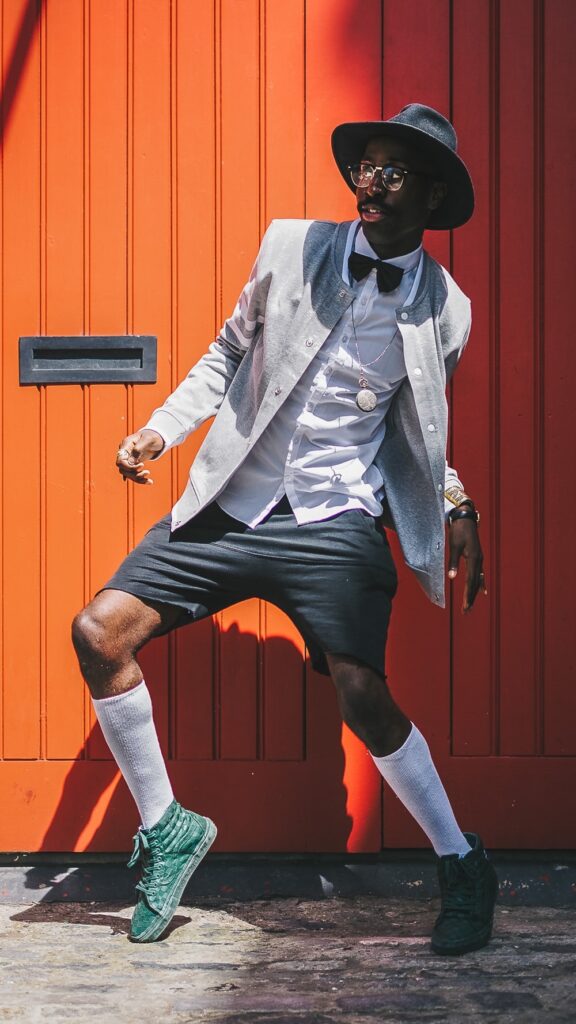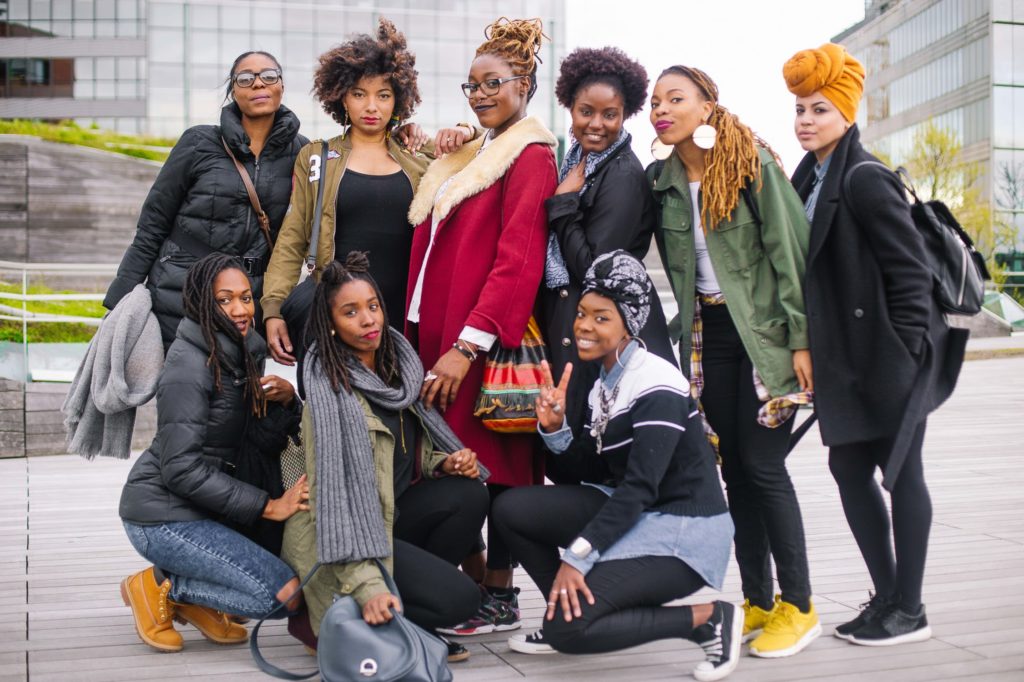Nowadays, the people that come to dance to blues music overall all hate/fear one thing: solo dancing. We’ve heard every reason: “I’m here for the connection”, “I’m scared”, “I don’t care about that”, even “I could never do that”. We want to point out the historical significance of solo dancing, why it’s important in your dancing today, and how to not let the fear of solo dancing stop your dancing development.
To me, one of the most foundation parts of African American vernacular dances is dancing alone. Before African Americans were brought to America, dancing with another person wasn’t done. Everyone learned to dance from childhood onwards. Different tribes had different customs, but in general, everyone danced and had a role/movement often based on gender. To learn, children watched adults and copied their movements. Some learned to play instruments for the dancers to dance to. But no matter what, dancing was a community effort, a way to come together for rituals, celebrations, and every day of life.

After we were moved to America, intermixed, and lost our families, we still danced. They found materials to make instruments since drums were banned, and made music and danced. The music permeated life and in time work songs and spirituals became present. There were times of community and solo movement, if not dancing. Gospel began to be sang and through the rejection of religion being the only reason to sing, so did the blues. Around this time slaves had started mocking the masters with cakewalks and in secret began to dance WITH EACH OTHER! The church still considered this to be inappropriate along with the blues being the “devil’s music” there was now a new element to the dancing, partnership, but still, everyone knew how to dance alone. They still had their own personal styles and used that to play with the music and their partners.
Today, students of all abilities mention to me that they could never solo dance.
I always find this funny as I’m in part known for my solo abilities. Me, the person who was humiliated and ridiculed at a young age for not being able to dance (alone) repeatedly, the same person who had panic attacks and cried at the thought of dancing alone even with no one watching. Still, it’s the thing I recommend to dancers most often to help them “get the blues” or to even “fix a swing-out” If you can’t do it alone, how will you be able to do it with someone else? Of course, saying it is easier than doing it, but that doesn’t lessen its importance. These dances, to us, start with the music first and always.
One has to really learn the music, participate in the music, add to it, to deepen their understandings of dancing to it. Then, learn to express themselves and the music through their own body. Attempting to master this skill opens so many doors and adds so much richness to the experience.
We encourage every blues or swing dancer to learn to dance on their own. Some things are a part of the dance for a reason. In Black culture, it’s assumed you can dance by yourself. At least sway and clap on two and four while singing. As these dances have left Black culture these, assumed portions have disappeared, for the focus of partnership and the goal of mastery of basics, over the ability to dance alone and be flexible. It’s important to be able to pick up and do different rhythms on your own, execute different movements with variations, trust your body to not let you fall, know what shapes look good on you, and most importantly connect with the music. That’s how you become better.
Can almost hear people asking, “how”.

Start slow. Riff with someone around your skill level. Do little dances in the bathroom. Do shimmies in the car. Start tiny jams with a few friends on the edge of the dance floor. Meanwhile, work in front of a mirror at home and find the things you like. Improve on those things until you can dance in front of people. Or take the head-on route and dance in front of a mirror naked for an hour a day(that’s a post for another day). The point is to allow yourself to work up to it. No one expects children who are new and scared to show off in front of people. If you are new to solo dancing don’t give yourself a hard time, it’s a new thing.
Need some inspiration? Check out this video!
If you like this writing consider subscribing so you never miss an update.


